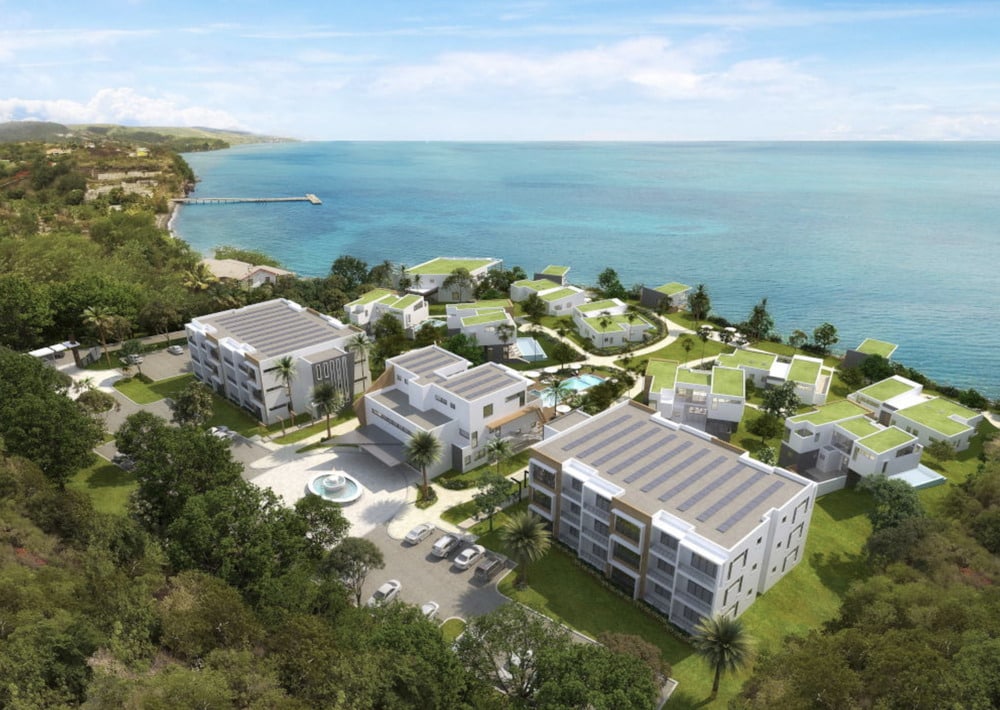Here is a detailed overview of the real estate sector in Dominica:
Real Estate in Dominica
Dominica’s real estate market is relatively affordable, eco-friendly, and growing steadily—especially in the residential, tourism, and foreign investment sectors. It attracts buyers seeking natural beauty, peace, and investment opportunities.
1. Types of Real Estate Available
| Type | Description |
|---|---|
| Residential | Houses, cottages, villas—mostly owner-occupied or rented. |
| Commercial | Shops, offices, hotels—mostly in Roseau and Portsmouth. |
| Land | Plots for farming, eco-resorts, or residential use. |
| Tourism Properties | Guesthouses, boutique hotels, Airbnb-style villas. |
| Eco-Properties | Off-grid homes, eco-villages, sustainable resorts. |
2. Popular Areas to Buy Property
- Roseau – The capital; best for commercial and residential property.
- Portsmouth – Northern town, tourism and cruise hotspot.
- Soufrière & Scotts Head – Popular for seaside homes and diving resorts.
- La Plaine & Rosalie – Rainforest and eco-living.
- Kalinago Territory – Land ownership is communal; foreign purchase is restricted.
3. Property Ownership by Foreigners
- Yes, foreigners can buy property, but must apply for an Alien Landholding License if buying more than 1 acre for residential or more than 3 acres for business.
- License cost: 10% of the property’s value (subject to change).
- Property must be used as described—fines apply for misuse.
4. Prices (Approximate)
- Residential homes:
- Rural areas: US$70,000 – US$150,000
- Coastal areas: US$200,000 – US$500,000+
- Land:
- US$1 – US$10 per sq. ft. depending on location and terrain
- Luxury villas:
- US$400,000 and up (especially near the sea)
Prices vary based on:
- Terrain (flat land is pricier)
- Access to roads/utilities
- Proximity to tourist zones
5. Citizenship by Investment (CBI) Program
Dominica offers citizenship through real estate investment:
- Invest a minimum of US$200,000 in a government-approved real estate project.
- Includes luxury resorts, eco-lodges, or government housing projects.
- Requires additional government fees and background checks.
6. Buying Process
- Choose a registered real estate agent or lawyer.
- Sign a sales agreement and pay a deposit (typically 10%).
- Do land title search and survey verification.
- Apply for Alien Landholding License (if foreign buyer).
- Pay government fees, stamp duty, and legal fees.
- Finalize the transfer and register the property.
7. Fees & Taxes
| Fee Type | Approximate Rate |
|---|---|
| Stamp Duty (Buyer) | 4% – 10% of property value |
| Legal Fees | 2% – 3% |
| Alien Landholding License | 10% (for foreigners) |
| Property Tax | Low; varies by property type/value |
8. Real Estate Trends
- Eco-tourism properties and climate-resilient homes are growing in demand.
- Post-hurricane rebuilding has created opportunities for construction and green development.
- Government supports sustainable housing and smart homes.


